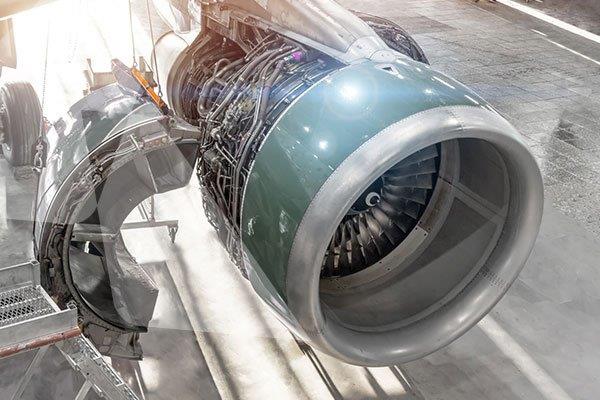In the dynamic world of Aviation Maintenance, Repair, and Overhaul (MRO), effective inventory management stands as a linchpin for streamlined operations and cost efficiency. As aircraft fleets continue to grow and technology evolves, managing spare parts and supplies becomes a complex challenge. In this blog post, we’ll delve into the intricacies of inventory management in aviation MRO, exploring the challenges faced and how technology plays a pivotal role in optimizing these processes.
The Challenges of Spare Parts Management in MRO
Navigating the intricate domain of Aviation Maintenance, Repair, and Overhaul (MRO) brings to the forefront a distinct challenge: the management of spare parts. With a diverse array of aircraft models, stringent regulatory requirements, and the unpredictability of maintenance needs, MRO operations grapple with intricate complexities in maintaining an efficient and well-balanced inventory of spare parts.
• Diverse Aircraft Fleets:
The aviation industry is marked by a diverse array of aircraft models, each with its own unique set of components. Managing spare parts for this varied fleet demands a comprehensive understanding of each aircraft’s requirements.
• Regulatory Compliance:
Aviation is a highly regulated industry, and MRO operations must adhere to strict regulatory requirements. Ensuring that the inventory is compliant with aviation authorities adds a layer of complexity.

• Unpredictable Demand:
Aircraft maintenance needs can be unpredictable, influenced by factors like unscheduled repairs, component failures, or unexpected changes in flight schedules. This unpredictability challenges MROs to maintain the right balance of inventory.
• Supply Chain Vulnerabilities:
Reliance on a global supply chain exposes MROs to potential disruptions, including geopolitical events, natural disasters, or fluctuations in demand. These external factors can impact the timely availability of spare parts.
Technology as a Catalyst for Efficiency
As Aviation Maintenance, Repair, and Overhaul (MRO) operations evolve in complexity, the quest for efficiency finds a powerful ally in technology. Serving as a catalyst for transformative change, technological advancements play a pivotal role in reshaping MRO processes, enhancing precision, and unlocking new dimensions of operational efficiency.
• Advanced Analytics and AI:
Leveraging advanced analytics and artificial intelligence (AI) allows MROs to forecast demand more accurately. Predictive analytics considers historical data, flight schedules, and component lifecycles, enabling better-informed decisions on inventory levels.
• Inventory Management Software:
Purpose-built inventory management software provides real-time visibility into stock levels, consumption patterns, and order statuses. Such tools automate routine tasks, reducing the likelihood of errors and enabling more efficient inventory control.

• RFID Technology:
Radio-frequency identification (RFID) technology is a game-changer in inventory tracking. RFID tags on components enable real-time monitoring, allowing MROs to precisely locate items, monitor usage, and automate reordering when stock levels reach predefined thresholds.
• Cloud-Based Solutions:
Cloud-based solutions facilitate collaboration and data accessibility across different MRO functions and locations. That not only improves coordination but also enhances the overall responsiveness of the MRO operation.
• Integration with Maintenance Systems:
Seamless integration between inventory management systems and maintenance systems is crucial. This integration ensures that the availability of spare parts aligns with scheduled maintenance, reducing downtime and optimizing resource utilization.
• Blockchain for Transparency:
Blockchain technology enhances transparency and traceability in the supply chain. By creating an immutable ledger of transactions, MROs can verify the authenticity of spare parts and track their journey from manufacturer to installation.
Benefits of Optimized Inventory Management
Optimization of inventory management emerges as a strategic cornerstone with multifaceted advantages. From cost reduction and improved aircraft availability to heightened regulatory compliance and agile responsiveness, the benefits of streamlined inventory processes are far-reaching, positioning MRO operations for enhanced efficiency and operational excellence.
• Cost Reduction:
Efficient inventory management prevents overstocking or understocking, reducing carrying costs and minimizing the risk of obsolete inventory.
• Enhanced Aircraft Availability:
Timely availability of spare parts ensures that maintenance tasks are completed promptly, minimizing aircraft downtime, and optimizing overall fleet availability.

• Improved Regulatory Compliance:
By aligning inventory with regulatory requirements, MROs can enhance compliance, reduce the risk of penalties, and ensure the airworthiness of the fleet.
• Agile Response to Changes:
Optimized inventory processes enable MROs to respond more effectively to changes in demand, unplanned maintenance events, or shifts in flight schedules.
Navigating Efficiency in MRO Operations
In the intricate world of aviation MRO, where precision is paramount, optimizing inventory management is a strategic imperative. The challenges posed by diverse fleets, regulatory complexities, and unpredictable demand necessitate a proactive approach. By embracing cutting-edge technologies such as AI, RFID, and blockchain, MROs can not only overcome these challenges but also propel their operations into an era of heightened efficiency, cost-effectiveness, and operational excellence. As technology continues to evolve, so does the potential for MROs to navigate the skies of efficiency with unprecedented precision and agility.
Ready to Elevate Your MRO Operations? Explore Poente Technical’s Cutting-edge Services! Discover the pinnacle of excellence in Aviation Maintenance, Repair, and Overhaul (MRO) with Poente Technical. Unleash the power of precision and reliability in your fleet management. Explore our world-class MRO services!








